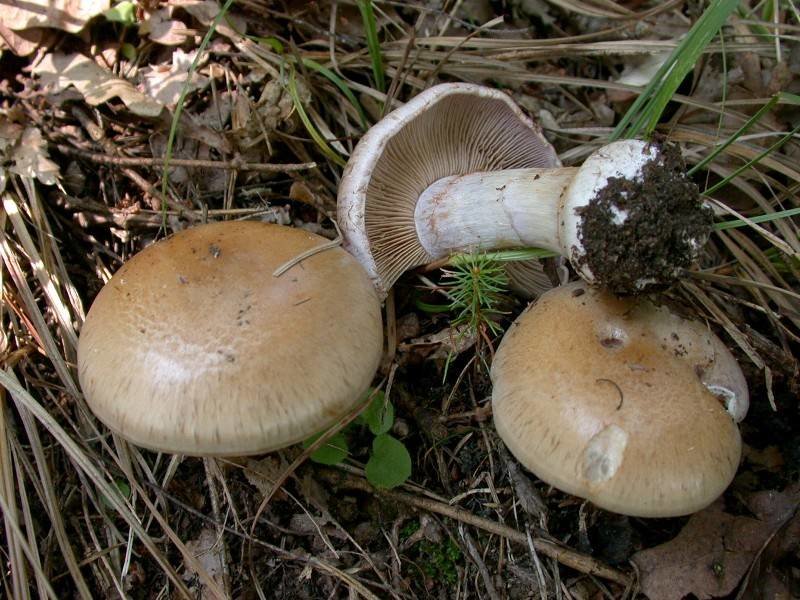Contents
Large cobweb (Cortinarius largus)
- Division: Basidiomycota (Basidiomycetes)
- Subdivision: Agaricomycotina (Agaricomycetes)
- Class: Agaricomycetes (Agaricomycetes)
- Subclass: Agaricomycetidae (Agaricomycetes)
- Order: Agaricales (Agaric or Lamellar)
- Family: Cortinariaceae (Spiderwebs)
- Genus: Cortinarius (Spiderweb)
- Type: Cortinarius largus (Greater cobweb)

Large cobweb (Cortinarius largus) is a genus of fungi from the Spider web (Cortinariaceae) family. It, like many other varieties of cobwebs, is also called a swamp.
External Description
The cap of a large cobweb has a convex-outstretched or convex shape. It is often gray-violet in color.
The flesh of a young fruiting body is lilac in color, but gradually becomes white. It has no characteristic taste and smell. The lamellar hymenophore consists of plates adherent with a tooth, slightly descending along the stem. at first, the hymenophore plates have a light purple color, then they become pale brown. The plates are often located, contain rusty-brown spore powder.
The leg of a large cobweb comes from the central part of the cap, has a white or pale lilac color, which changes to brown towards the base. The leg is solid, filled inside, has a cylindrical shape and a club-shaped thickening at the base.
Season and habitat
The large cobweb grows mainly in coniferous and deciduous forests, on sandy soils. Very often this type of fungus can be found on forest edges. Widely distributed in many European countries. The best time to collect a large cobweb is the first month of autumn, September, in order to preserve the mycelium, the mushroom must be carefully twisted out of the soil during collection, clockwise. To this end, the mushroom is taken by the cap, rotated 1/3 and immediately tilted down. After that, the fruiting body is again straightened and gently lifted up.
Edibility
The large cobweb (Cortinarius largus) is an edible mushroom that can be prepared immediately for eating, or made from the mushroom for future use (canned, pickled, dried).
Similar types and differences from them
Characteristic external signs do not allow confusing the large cobweb with any other type of fungus.









